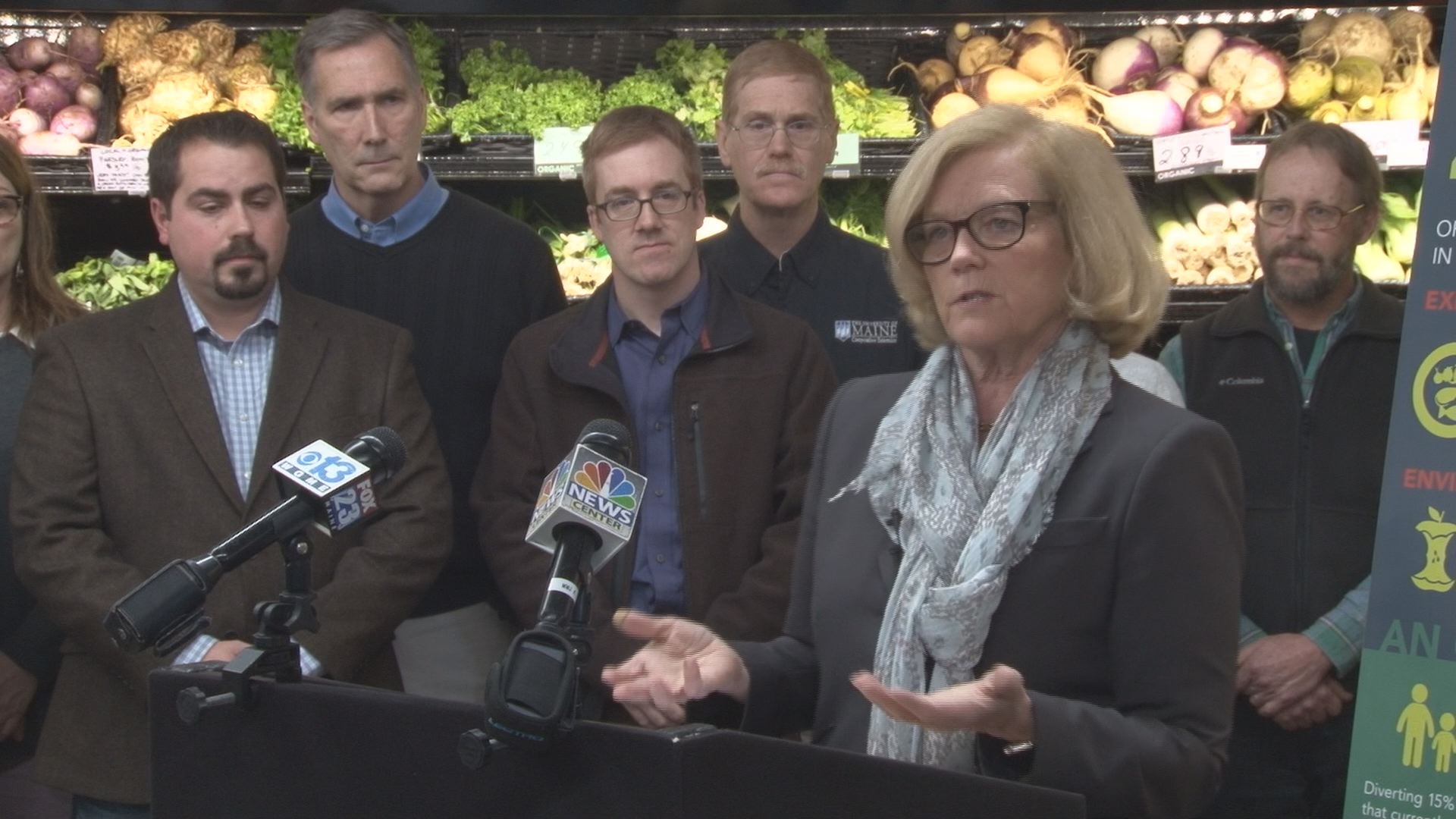PORTLAND, Maine (NEWS CENTER) --
Congresswoman Chellie Pingree announced her plan to introduce a new bill to Congress on Monday that would help reduce food waste in America.
The goal of the comprehensive bill is to re-purpose food that would typically be wasted or not sold, including giving it to food pantries.
The bill aims to help farms, retailers, restaurants and schools waste less food, while diverting high quality food to food banks, and using non-edible food scraps to produce energy or compost.
"It just makes common sense to people," said Congresswoman Pingree. "I think everybody had a grandmother who said, 'don't waste any of your food,' and we all have that in our heads."
Pingree made the announcement at the Portland Food Co-op, an organization that sells food from more than 250 Maine farmers and producers.
"We know how hard they work to produce food," said John Crane, the Co-op General Manager. "We know how hard it is to see all of this great food not end up on people's tables."
Kristen Miale, the President of the Good Shepherd Food Bank; George Parmenter, the Manager of Sustainability for Hannaford Supermarkets; and Dan Bell, the General Manager of Agri-Cycle Energy all backed Pingree's bill.
Pingree's bill includes numerous provisions including one that would standardize the "best by" date that manufacturer's use on food. Congresswoman Pingree said the "best by" date should include the words "manufacturers suggestion," because many items are still okay to eat for a while after that date. She said manufacturers sometimes write that date in order to move more food off the shelves.
"We have to put some sensibility into the system. Consumers hate throwing away food by they don't know when they should and when they shouldn't," said Pingree.
The bill also includes a provision to give farmers more tax deductions for donating to food banks.
"We need to continue to find solutions to hunger on all fronts and redirecting food waste one of the most effective solutions to date," said Kristen Miale, president of the Good Shepherd Food Bank, who said the food bank recently invested in a new 115,000 cubic foot warehouse that will help increase the shelf life of food.
Pingree said she is optimistic about the bill's future because she believes it is unlikely to receive a lot of ideological pushback.
Statistics from the United States Department of Agriculture and the Environmental Protection Agency say 40 percent of all food produced in the U.S. is wasted.
"We're all worried about hunger in this country and we'd love to see food that was going to get wasted go to people who deserve it," said Pingree.
"It's not too small of an issue," said shopper Jonathan Corey. "Food security is super important. I feel like everyone can get behind that."
She said the biggest complication will be figuring out "the mechanism to make it all happen," saying that just because a food is not "Grade A," does not mean it is not edible.
"It just didn't make any sense to me. It costs money, it's bad for the environment, and most of these stores and institutions would rather have a better way to deal with it," said Pingree. "We've got so many problems in our country -- we shouldn't throw away food."


